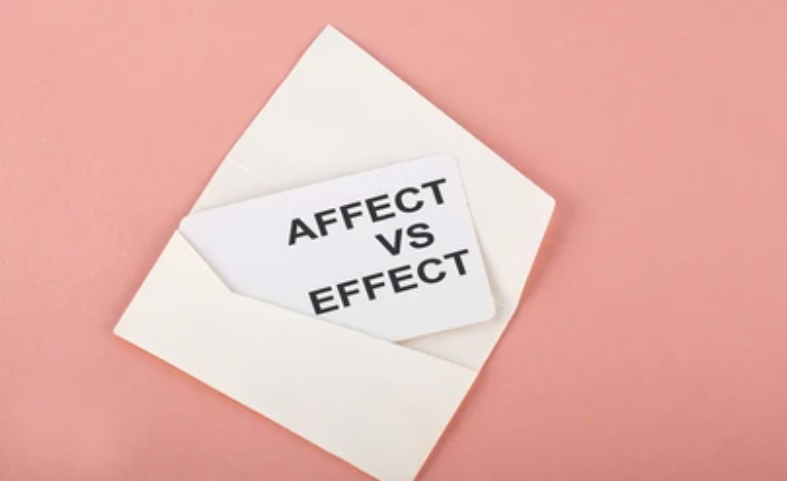Effect vs Affect, In the English language, “effect” and “affect” are two words that are often confused due to their similar spellings and meanings. However, they serve different roles in sentences and convey distinct ideas. Understanding their correct usage is essential for effective communication.
Table of Contents
Understanding “Effect”
The word “effect” is commonly used as a noun to indicate the result or outcome of an action. It refers to the impact or consequence that follows from a cause. For example, “The new policy had a positive effect on employee morale.”
Common phrases with “effect” include “take effect,” “in effect,” and “special effects” (as seen in movies).
Understanding “Affect”
On the other hand, “affect” is typically used as a verb to denote the act of influencing or producing a change in something. It refers to the action of causing an effect. For instance, “The loud noise affected my concentration.”
Common phrases with “affect” include “emotionally affected,” “weather affecting travel plans,” and “affect change” (meaning to bring about change).
How to Remember the Difference
To differentiate between “effect” and “affect,” you can use a simple trick: “Affect” is a verb (action), and “effect” is a noun (outcome). Remembering this distinction can help you choose the correct word in your writing.
Correct Usage in Sentences
Using these words correctly in sentences is crucial for clear communication. For instance:
“The pandemic had a profound effect on global economies.”
“Her positive attitude affects everyone around her.”
Impact of Incorrect Usage
Misusing “effect” and “affect” can lead to confusion and weaken the clarity of your writing. Using the wrong word might alter the intended meaning of a sentence, causing misunderstandings.
Common Mistakes and Pitfalls
One common mistake is using “effect” as a verb, which is incorrect in standard English. Similarly, using “affect” as a noun is also incorrect.
Contextual Considerations
Choosing between “effect” and “affect” depends on the role each word plays in the sentence. Understanding the context is key to using them correctly.
Language Evolution
Languages evolve over time, and the usage of words like “effect” and “affect” can change with cultural shifts and trends in communication.
Tips for Improving Grammar and Vocabulary
To enhance your language skills, practice using “effect” and “affect” in various sentences. Reading extensively and using grammar resources can also aid in developing proficiency.
Practical Exercises
Rewrite sentences using “effect” and “affect” correctly.
Create scenarios where each word is used appropriately.
Importance of Precision in Writing
Using words accurately contributes to clear and effective communication. Precision in language helps convey ideas accurately to readers.
Key Takeaways
Understanding the difference between “effect” and “affect” is vital for effective writing and communication. Remember that “effect” is typically a noun representing a result, while “affect” is usually a verb indicating influence.
Conclusion
Mastering the distinction between “effect” and “affect” enhances your writing skills and ensures that your message is conveyed clearly. Practice using these words correctly to improve your language proficiency.
FAQs
What is the most common mistake people make with “effect” and “affect”?
The most common mistake is using “effect” as a verb, which is incorrect. Remember, “effect” is a noun, and “affect” is a verb.
Can “effect” ever be used as a verb?
No, “effect” should not be used as a verb in standard English.
How do I avoid mixing up “effect” and “affect” in my writing?
Use the verb/noun trick: “affect” is a verb (action), and “effect” is a noun (outcome).
Are there regional differences in the usage of these words?
Generally, the distinction between “effect” and “affect” is consistent across English-speaking regions.
Why are “effect” and “affect” so commonly confused?
Their similar spellings and related meanings contribute to the confusion. Remembering their roles in sentences can help clarify their usage.
